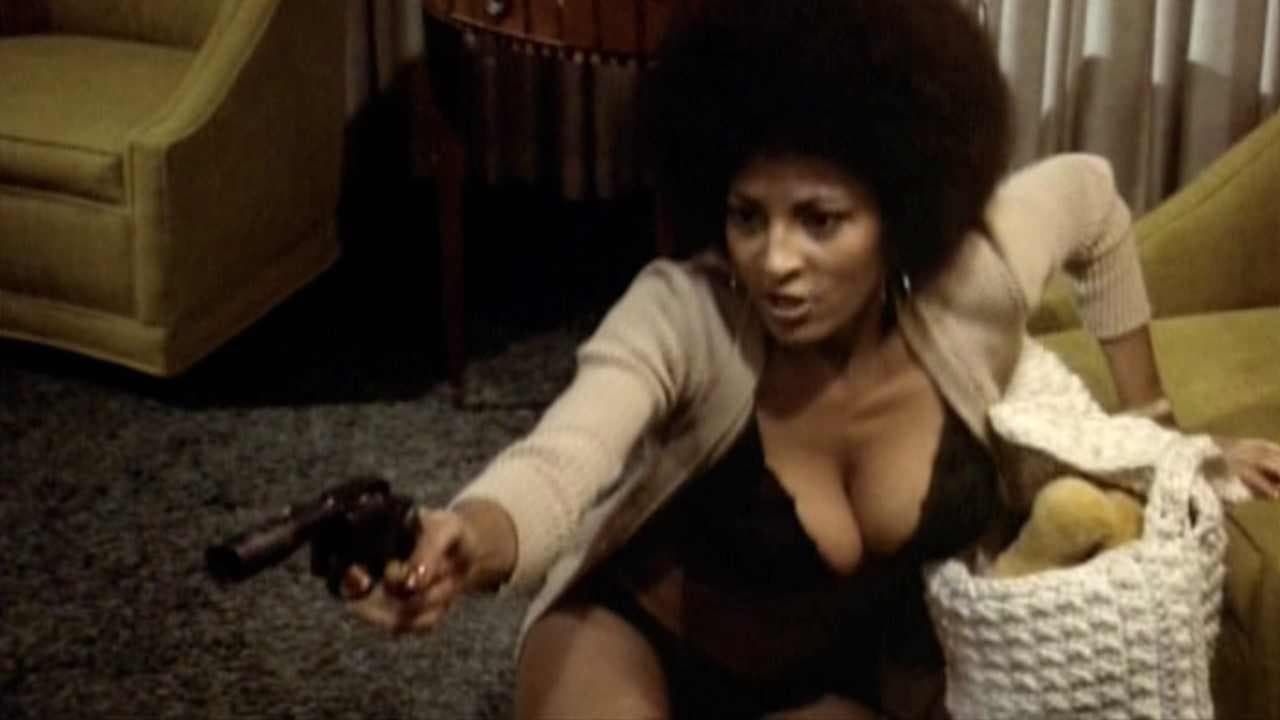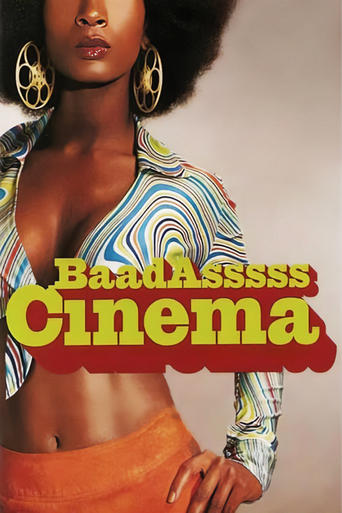

Just watched this doc on YouTube. It's a fascinating look at the Blaxploitation film era, roughly 1971-75, and some of the people involved in it who consented to an interview like Pam Grier, Fred Williamson, Gloria Hendry, plus Caucasians like Larry Cohen as well as Quentin Tarantino, the latter having grown up watching those films and then putting Grier in his Jackie Brown as a tribute to them. I've seen many of these films when renting videos during the '90s and have reviewed some of them on this site and since many of them are also online, I may review many more in the near future. Many of the movies are of their time but many also still have their merits as entertainment. I mean, Shaft, Coffy, Foxy Brown, and Super Fly, well, they're bad Mutha (Shut Yo' Mouth)! So watch this space for my reviews of those and more...
... View MoreBaadasssss Cinema (2002) *** 1/2 (out of 4)Quentin Tarantino, Pam Grier, Samuel L. Jackson, Melvin Van Peebles, Fred Williamson and critic Elvis Mitchell are among the people interviewed for this entertaining documentary that takes a look at the blaxploitation movies of the 1970's. At just under a hour there's no question that this doesn't contain the greatest details but it at least has many of the stars that were in the movies as well as people like Tarantino who has kept the genre alive for new fans to discover. The best thing about this movie is that we get some very good discussions about race relations at the time and how these movies were fresh and original and especially in how these movies helped give black crowds a different type of hero.The documentary covers not only the popularity of these films but also the controversy that haunted them. Both subjects are discussed in great detail and we also get some wonderful clips from various movies. There's also a great interview with Grier who of course was one of the best actresses from this era and certainly one of the most beautiful women to ever grace the screen.
... View MoreIt was Quentin Tarantino's famous interest in the old 1970s blaxploitation films, as well as Pam Grier, that first got me interested in the genre, but not knowing what the genre was really about, or at least not knowing the history behind it's formation, its themes, even its actors, made me not enjoy the first handful of the films that I watched, like Coffy, Foxy Brown, Black Mama, White Mama, and Sheba, Baby. Granted, I don't think any amount of documentaries could make me enjoy Sweet Sweetback's Badaaasss Song, but I suppose I can certainly understand the society in which it was made. What I loved about this documentary is the way it gives a look not only at the blaxploitation films of the 19670s, but also gives the historical context under which they were made, including their level of popularity in places like Los Angeles, where I live, and Hollywood's response. There are a number of debatable claims made in the documentary, such as blaxloitation saving Hollywood or Hollywood killing the blaxploitation genre, but what I really appreciated were the interviews from some of the original actors as well as brief looks at several of the more prominent blaxploitatoin films, some of which I enjoyed, like Black Caesar, and some of which remain not really my favorites, like Sweet Sweetback and Super Fly. The cast give very revealing interviews, both about their experience in being involved in the blaxpoitation genre, as well as giving their insights into the meaning and fate of the genre. I was glad to see that Quentin Tarantino appears to talk about blaxploitation's influence on him and his films because he is obviously so heavily inspired by them, but there were some other heavyweights that are far too conspicuously absent, most notably the tremendously successful Spike Lee. Odd, since this documentary was released in 2002, far too early for them to have already been mad at Spike for She Hate Me.Gloria Hendry tells the story about getting her first role in Black Caesar and becoming instantly famous, and others talk about their involvement and experience with the genre, such as Samuel L. Jackson and even Ameni Shakur, Tupac's mother, who was a member of the Black Panther party. Pam Grier gives a brilliant interview, revealing a depth of character and a studied intelligence that far surpasses anything that she has ever been able to reveal in any of her films. She speaks so intelligently that this interview alone almost makes it look like she has been accepting roles far beneath her ability for the majority of her career. And she's good, too, I'd like to see a lot more of her in the future. I really think she has adapted well to the changes that have taken place in her life and in the film industry since the end of blaxploitation.Fred Williamson, one of the most famous actors from the genre, gives a rather sour, disillusioned interview, focusing on pretty negative subjects and ideas. The one that stuck out to me the most was that he said something like no one ever wanted black film, their was never any real desire or need for it, people just wanted to see black people on film. Something like that, at any rate, he claimed that no one ever really wanted blaxploitation, it happened for other, more superficial reasons, which I don't agree with at all. The people that packed those theaters sure wanted it.Blaxploitation is something of an offbeat subgenre in cultural film history, but I think that it is one that needs some explanation before a lot of people will really enjoy, and some people won't enjoy it even then. Sort of like how some supplemental documentaries included with DVDs will make you enjoy certain movies more than you otherwise would have, this documentary is an excellent way to get a basic introduction to the genre, and make sure to have a pen and paper handy when you watch it, because you'll want to write down some of the movies that it talks about so you can remember to watch them!
... View MoreEven I, who have seen Melvin van Peebles' Sweet Sweetback's Baaddasssss Song, loved every minute of this revealing documentary. Richly documented with inserts from the films that are being discussed on camera, or that merely give extra power to the narration; also, a number of newspaper clips with headers that made history, or highlighted the political change trends in the late 1970s. The number of people interviewed, and the important messages they deliver now - is a unique upraisal of their work of a quarter of a century ago. For me at least, it was also marvellous to see how Pam Grier, and Gloria Hendry, have gained weight, but are beautiful, sexy women even now. For the young generation, this documentary is also a good introduction to white/black relationships in the USA in the late 1960s - and a big incentive to discover nice, little action and nudity films of the 1970s now (unfortunately) mostly relegated to video warehouses.
... View More